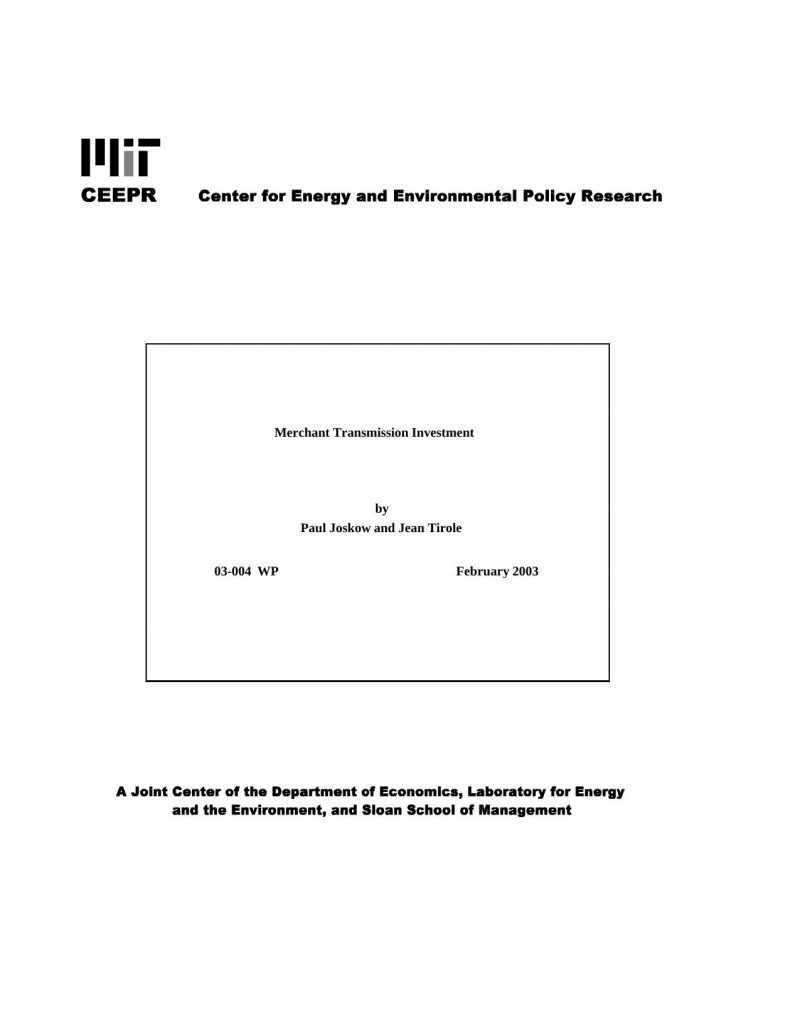Merchant Transmission Investment
Paul L. Joskow and Jean Tirole
03-Feb
We examine the performance attributes of a merchant transmission investment framework that relies on “market driven” transmission investment to provide the infrastructure to support competitive wholesale markets for electricity. Under a stringent set of assumptions, the merchant investment model has a remarkable set of attributes that appear to solve the natural monopoly problem and the associated need for regulating transmission companies traditionally associated with electric transmission networks. We expand the merchant model upon which these conclusions are based to incorporate imperfections in wholesale electricity markets, lumpiness in transmission investment opportunities, stochastic attributes of transmission networks and associated property rights definition issues, the effects of the behavior of system operators and transmission owners on transmission capacity and reliability, coordination and bargaining considerations, forward contract, commitment and asset specificity issues. Incorporating these more realistic attributes of transmission networks and the behavior of transmission owners and system operators significantly undermines the attractive properties of the merchant investment model. Relying primarily on a market driven investment framework to govern investment in electric transmission networks is likely to lead to inefficient investment decisions and undermine the performance of competitive markets for electricity. A significant research challenge is to design regulatory mechanisms for system operators and incumbent transmission owners and a better framework for defining transmission property rights that will stimulate efficient investments by regulated incumbent transmission owners and by merchant entrants responding to market opportunities when they are the most efficient suppliers.



